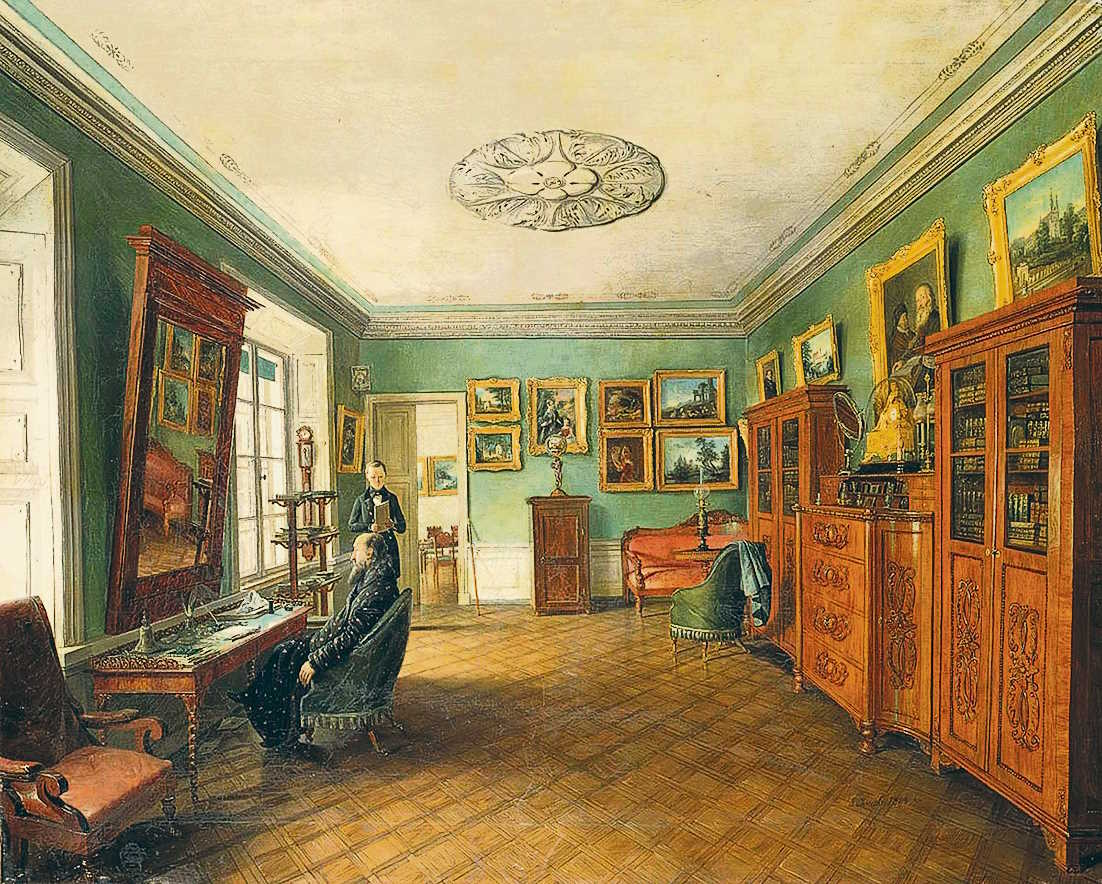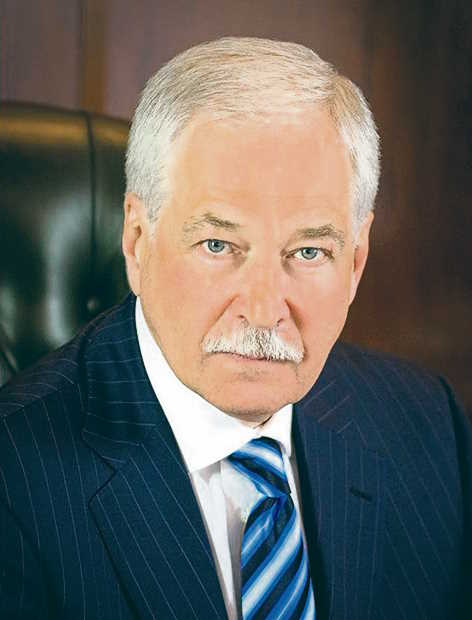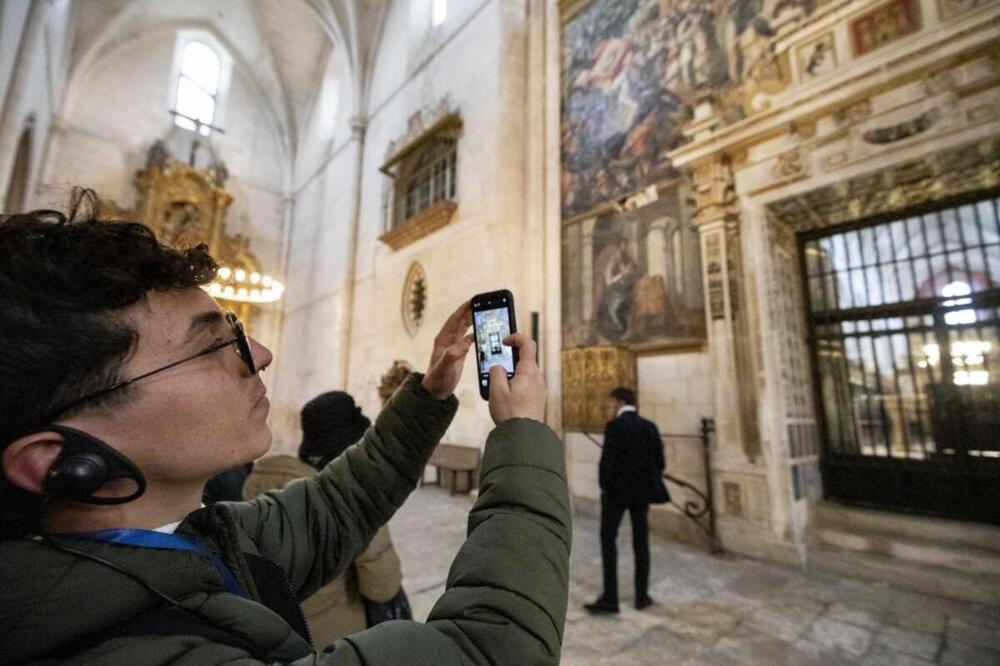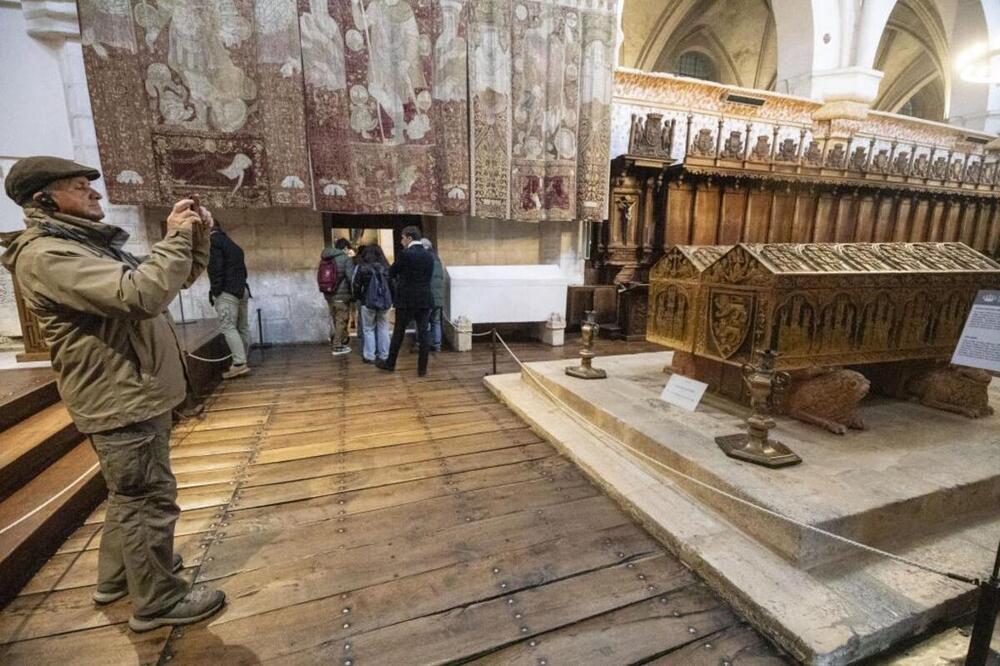Митрополит Иосиф Семашко. Герой вне времени
Историческая память – урок современникам
Религиозный фактор на протяжении столетий являлся одним из основных инструментов политики европейских государств. Под лозунгами распространения западного христианства осуществлялись многочисленные крестовые походы, захват стран и целых континентов, порабощение некогда свободных народов, уничтожение несогласных. Для достижения своих целей западные монархии, рыцарские ордена использовали самые различные способы – от покорения огнём и мечом до подкупа чужестранных элит и лукавых обещаний короны. Показательным здесь является пример жизни и правления святого благоверного князя Александра Невского. Сперва «непрошеные гости» с Запада дважды пытались силой покорить русский народ и дважды были наголову разбиты и отброшены назад. Затем пришёл черёд хитрости и коварства: эмиссары Ватикана уговаривали Александра Невского принять папскую корону и отказаться от своей веры, но и тогда вернулись домой ни с чем. Примечательно, что наследие и наследники благоверного князя спасли каноническое православие и в третий раз. Сын Александра Невского и полоцкой княжны Александры Брячиславны Даниил основал московскую ветвь династии Рюриковичей и способствовал возвышению Московского княжества. Именно с Москвы впоследствии пойдёт освобождение земель русского триединого народа – великороссов, белорусов и малороссов от ордынцев, литовцев и поляков.
На протяжении веков мы сталкивались с постоянным, всё возрастающим давлением Запада, стремящегося, как и в наши дни, подчинить своей воле и чуждой нам религии восточнославянские земли. Но русские люди оставались непреклонны в отстаивании исторического выбора своих предков, сохранении самобытности и уникальной культуры, основанной на духовном фундаменте православной веры.
После Крещения Руси в течение почти четырёхсот лет на землях современной Белоруссии господствовало православие. По мере усиления феодальной раздробленности и роста числа междоусобиц западные и юго-западные русские княжества стали ослабевать, в первую очередь в военно-политическом плане. Здесь самым очевидным образом напрашиваются параллели с реалиями недавнего прошлого. Наши внутренние противоречия, незначительные разногласия внутри одной семьи народов активно использовали западные оппоненты, разрывая многовековые узы братства, порождая на наших общих землях местечковый национализм, сея рознь, выпячивая искусственные различия и стирая многочисленные свидетельства нашего глубинного единства. Неспособность извлекать уроки из прошлого приводит к самым драматическим последствиям, которые мы можем сейчас наблюдать на Украине, где США и их европейские сателлиты, руководствуясь старым как мир принципом «разделяй и властвуй», разожгли пожар гражданской, братоубийственной войны, который мы великой ценой стараемся потушить.
Ретроспективно возвращаясь во времена феодальной раздробленности Древней Руси, стоит отметить, что потерей сплочённости и единства наших предков не могли не воспользоваться враги. Примечательно, что те же самые, что и сегодня. Во второй половине XIII в. – начале XIV в. земли современной Белоруссии были, по сути, оккупированы язычниками-литовцами, балтскими племенами и их правителями: Миндовгом, получившим корону из рук папы римского, а позже Гедемином и его наследниками. Балты обладали сплочённостью, поддержкой Ватикана, сильной армией, но они заметно проигрывали нашим предкам по уровню развития культуры, письменности, народных традиций. Литовское правящее меньшинство переняло древнерусский письменный язык, активно используя его в делопроизводстве. В остальном же балтская элита проводила в отношении коренного населения Белой Руси дискриминационную политику, основанную на национальных и религиозных различиях. С конца XIV в. Литва окончательно становится католическим княжеством, а в 1569 г. она соединяется с Польским королевством в единое государственное образование – Речь Посполитую. С этого момента искусственное насаждение католицизма на исконно православных землях приобрело максимально агрессивные формы. Православное население всеми силами стойко сопротивлялось этому мощному давлению, и лишь единицы уступали, переходя в католицизм. И здесь власти, подталкиваемые Ватиканом, пошли на обман и хитрость – в 1596 г. ряд епископов-вероотступников Киевской митрополии Константинопольской православной церкви во главе с уроженцем Волыни митрополитом Михаилом Рогозой приняли так называемую Брестскую церковную унию. Коварство унии заключалось в том, что при сохранении некоторых элементов формы полностью подменялась суть. Старыми оставались богослужение на церковнославянском языке и ряд малозначимых обрядов. Главное же, что униаты полностью переходили под власть Ватикана и его идеологию.
Вновь напрашиваются исторические параллели с нынешними политическими реалиями. В XVI в. вероотступники из Киева приняли унию, а в XXI в. их последователи получили Томос. Примечательно, что к настоящему моменту Константинопольский патриархат, расположенный на территории государства – члена НАТО, потерял какую-либо самостоятельность и стал инструментом политической и духовной розни в руках заокеанских кукловодов. Выбранный киевским режимом путь разделения общества по национальному и языковому признаку теперь дополнен и религиозным разобщением. Плодятся всевозможные секты, претендующие называться церквями, у истинно православного духовенства и паствы в ходе рейдерских захватов изымаются храмы, монастыри, святыни. Брат натравливается на брата. Людей лишают своей истории, культуры, веры. Политтехнологи сочиняют наспех свёрстанные учебники. Повсюду распространяется неонацистская пропаганда, правда подменяется ложью, добродетель – ненавистью и злобой. Сперва Запад пытался лишить украинцев разума, теперь он отравляет их душу. Сегодняшние события на Украине наглядно демонстрируют трагические последствия потери государством суверенитета и попадания под пяту Запада. Что произойдёт с обществом и народом, если вовремя не остановить религиозный раскол, вновь расскажет нам история.
Принятие Брестской унии сопровождалось фактическим запретом православия на территории Речи Посполитой. Гонения на православных белорусов приняли невиданные масштабы. Закрывались храмы, отнималось имущество монастырей, коренное население превращалось в людей второго сорта. Знатью, шляхтой могли становиться только католики. Поучительна здесь судьба униатского архиепископа Иосафата Кунцевича. Он так же, как и Михаил Рогоза, родился на Волыни и был изначально православным. Позже, польстившись на обещания католической элиты, он перешёл в униатство и стал яростно служить папскому престолу. Любыми способами он обращал православных в этот вид католицизма, за что получил от наших предков прозвище душехвата. Вместе со своими приспешниками мог врываться в православные храмы, срывать богослужения, угрожать священникам, требовать отказаться от своей веры. Всё это закончилось для него печально – белорусы не смогли сдержать копившиеся многие годы гнев и обиду. Жители Витебска ворвались в 1623 г. в дом Кунцевича и прервали его земной путь. Реакция польско-литовской элиты оказалась кровавой – свыше ста белорусских православных было приговорено к жестокой казни. За свою ретивость архиепископ Иосафат позже был канонизирован, а его имя активно продвигается в настоящее время Ватиканом для возрождения неоуниатства на землях канонического православия. И если на попавшей под внешнее управление Украине подобная тактика смогла принести разрушительный результат, то в Белоруссии, имеющей сильную и мудрую власть, сплочённое общество, умеющее хранить историческую память, такие приёмы не работают.
Ко времени Первого раздела в 1772 г. в Речи Посполитой действовала единственная православная епархия – Могилёвская, которая объединяла 550 тысяч верующих, проживавших на пространствах современных Белоруссии, Украины, Литвы и Восточной Польши. При этом в унии к тому моменту действовало 8 епархий, а число униатов составляло не менее 8 000 000 человек.
Положение православия резко улучшилось с вхождением западнорусских территорий в состав Российской империи. Вновь стали открываться приходы, монастыри. Православные белорусы, пройдя ужасы многовекового гнёта со стороны польско-литовской католической элиты, вновь почувствовали себя свободными. Тем не менее процесс возвращения белорусских земель в лоно родной церкви и веры шёл недостаточно быстро. Наследники вчерашних угнетателей любыми способами стремились сохранить своё влияние и свою религию.
К 1839 г. в Российской империи всё ещё проживало свыше 1 600 000 униатов, абсолютное большинство из них на территории современной Белоруссии. Однако уже через несколько лет белорусские земли были полностью освобождены от придуманного в 1596 г. «подвида католицизма», а население смогло спустя века страданий и гонений вернуться к вере своих предков. Этот уникальный по своему значению и стремительности реализации процесс был осуществлён, по сути, одним великим человеком, подвижником Русской православной церкви – митрополитом Виленским Иосифом (Семашко).
Митрополит Иосиф родился 25 декабря 1798 г. (5 января 1799 г. по новому стилю) в униатской семье. В 1829 г. он принял монашеский постриг и был назначен епископом Мстиславским. С самого начала своего служения церкви он стремился вернуться к православию, а также вернуть к истинной вере белорусов. После неудачного польского восстания 1830–1831 гг., целью которого было восстановление Речи Посполитой и возвращение белорусов под гнёт польско-литовской католической шляхты, вопрос восстановления православия в Западном крае Российской империи приобрёл особое значение. В 1833 г. Иосиф Семашко был назначен епископом Литовским, а его идеи по возвращению белорусов к родной вере всесторонне поддержаны. К 1837 г. под влиянием епископа большинство униатских священников письменно подтвердили свою готовность присоединиться к православию. 12 февраля 1839 г. по инициативе Иосифа Семашко в Полоцке состоялся Собор, на котором был принят акт о присоединении униатской церкви к Русской православной церкви и составлено соответствующее прошение к императору Николаю I, удовлетворённое 25 марта того же года. В связи с этим важнейшим историческим событием была отчеканена медаль «Отторгнутые насилием (1596) воссоединены любовию (1839)». После Полоцкого собора, которому предшествовала титаническая подготовительная работа Иосифа Семашко, в лоно матери-церкви перешло более 1400 приходов и свыше 1 600 000 верующих.
Вся жизнь этого великого и праведного человека была образцом святости. Духовный облик владыки Иосифа, его качества церковно-общественного деятеля нашли отражение в мемуарах самого митрополита, многочисленных воспоминаниях его современников, официальных документах, сопровождавших подготовку Полоцкого собора. Митрополит Иосиф снискал себе искреннюю любовь и уважение миллионов простых людей. Свободные денежные средства, которые у него появлялись, он тратил на помощь бедным. В голодные годы организовал раздачу хлеба нуждающимся.
Митрополиту Иосифу удалось в неимоверно сложных условиях добиться того, что православие окончательно вернулось в жизнь воссоединённого духовенства и простого народа. Здесь можно отметить влияние его личности и оригинальные методы церковного управления. К примеру, он без видимого труда сумел изменить внешний вид воссоединённых священников. Брить бороды и носить латинское духовное платье им дозволялось решением Полоцкого собора, что вызывало искреннее непонимание у простого народа. Решение владыки Иосифа было поистине нетривиальным. В 1842 г. он сам вместе с несколькими ближайшими соратниками отрастил бороду и облачился в православное одеяние, после чего запретил приходскому духовенству самовольно делать то же самое. По епархии было объявлено, что разрешение на перемену костюма и отращивание бороды может быть дано только как награда за усердную службу и хорошее поведение. Сразу же борода и ряса стали престижными, а костюм ксёндза и гладко выбритые щёки – признаком отсталости и ущербности.
Как отмечал сам митрополит Иосиф: «…с детства имел… душевное влечение к России и всему русскому… Неизмеримая Россия, связанная одною верою, одним языком, направляемая к благой цели, одной волей, стала для меня лестным, великим отечеством, которому служить, благу которого споспешествовать считал я для себя священным долгом – вот сила, которая подвигала меня на воссоединение униатов, отверженных в смутные времена от величественного русского православного древа…»
Жизнь этого великого человека, истинного защитника православия, патриота своего Отечества, была образцом святости и добродетельности. Видимо, поэтому столь многие служители церкви, миряне поднимают давно назревший вопрос о канонизации митрополита-воссоединителя. Спустя 155 лет после кончины владыки всё отчётливее прорисовывается колоссальный масштаб его личности, великий вклад в дело сохранения духовных уз братства между народами России и Белоруссии.
Бывают герои своего времени, но бывают и герои вне времени. Напрашивающиеся исторические параллели между святым благоверным князем Александром Невским и владыкой Иосифом имеют вполне логичное обоснование. Подвижнический пример этих выдающихся сынов нашего Отечества необходимо экстраполировать на сегодняшнюю ситуацию. Только объединяя общество и народы, концентрируясь на общем, а не на разном, мы сможем отстоять свою свободу и независимость. Приёмы наших извечных врагов не меняются уже столетиями – попытки разобщить, подогреть ситуацию за счёт национализма, пообещать части элиты «светлое будущее» на Западе. Нас уже растащили в 1991 г., теперь это им не удастся. Россия и Белоруссия верны заветам своих великих предков. Мы вместе строим Союзное государство, ибо знаем, что в единстве наша сила, залог наших будущих побед и свершений. Этого ждут наши братские народы, и в наших силах оправдать это высокое доверие.
Всенародное признание Александра Невского и Иосифа Семашко лишний раз доказывает нам, что если высшей целью твоей жизни становится беззаветное служение своему Отечеству, то память о тебе будет навечно сохранена в умах и сердцах благодарных потомков.
Борис Грызлов,
почётный член Российского военно-исторического общества, Чрезвычайный и Полномочный Посол Российской Федерации в Республике Беларусь










